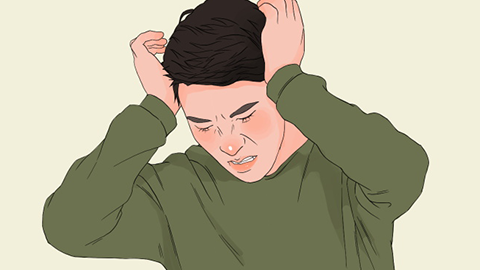What could be causing a 20-year-old's irritable and easily angered temperament?
A 20-year-old experiencing irritability and quick temper may be due to hormonal fluctuations, lack of sleep, anxiety disorder, hyperthyroidism, manic episodes, or other causes. Symptoms can be improved through regulating sleep schedules, emotional relaxation, and medication. If symptoms persist or worsen, or are accompanied by emotional outbursts or physical discomfort, prompt medical attention is necessary.
1. Hormonal fluctuations: Changes in hormone levels during puberty or the menstrual cycle can affect nervous system regulation, leading to emotional sensitivity and irritability, with frustration easily triggered by minor issues. It's recommended to maintain a regular sleep schedule, avoid staying up late, and engage in outdoor activities to relieve stress and regulate emotions through exercise.
2. Sleep deprivation: Chronic late nights and poor sleep quality prevent the brain's nerves from fully resting, reducing emotional regulation capacity and increasing irritability. It's advised to establish a consistent sleep routine, ensure 7–8 hours of sleep per night, and avoid electronic devices before bedtime to create a quiet sleeping environment.

3. Anxiety disorder: Accumulated stress from academic or social pressures may lead to excessive psychological burden and neurotransmitter imbalances, manifesting as irritability, anger, persistent anxiety, and difficulty concentrating. Patients may take medications such as sertraline hydrochloride tablets, fluoxetine capsules, or lorazepam tablets under medical supervision to alleviate symptoms.
4. Hyperthyroidism: Excessive secretion of thyroid hormones increases nervous system excitability, causing irritability and anger, along with palpitations, heat intolerance, and weight loss. It's recommended to take medications such as methimazole tablets, propylthiouracil tablets, or sustained-release propranolol tablets under a doctor’s guidance to improve symptoms.
5. Manic episode: Dysfunction in the brain's emotional regulation center leads to elevated mood, irritability, increased speech, heightened activity, and reduced need for sleep. Patients may follow medical advice to use lithium carbonate sustained-release tablets, sodium valproate sustained-release tablets, olanzapine tablets, or similar medications to manage symptoms.
Maintain a regular sleep schedule and sufficient rest, eat a light and balanced diet rich in fruits and vegetables, communicate openly with family and friends, and engage in calming exercises such as jogging or meditation to help stabilize emotional well-being.




